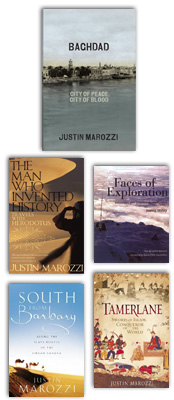The west is easily distracted. Just as the war in Iraq diverted attention from Afghanistan, allowing the Taliban to regroup and consolidate its hold over much of the country, so the war in Afghanistan has blinded policymakers to the growing crisis in Somalia. Islamist rebels who on Tuesday killed more than 30 people including MPs and officials in a raid on a hotel in Mogadishu are now exporting terrorism beyond its borders. Somalia poses a genuine danger to the Horn of Africa region and the west.
Last month’s twin bomb attacks in Uganda’s capital Kampala, which killed 76 people, changed the rules of the game. They marked the first time the al-Shabaab group, which controls much of southern Somalia and most of Mogadishu, had struck outside the country. At a stroke a hitherto local conflict within a marginal country that has not had a government since 1991 was internationalised. Ahmed Abdi Godane, al-Shabaab’s leader, warned this was “just the beginning”.
While Washington and London have concentrated on Afghanistan, al-Shabaab has been recruiting foreign fighters. In February, it announced an alliance with al-Qaeda. It is now the strongest armed faction in the country. Jihadists commute freely between Yemen and Somalia across the Gulf of Aden. The southern Somali port of Kismayo has become a logistics hub, allowing the movement of men and materiel into Somalia. For Somalis, the rise of these extremists has been a catastrophe. Daily life is characterised, by Human Rights Watch as “grinding repression” against a backdrop of public beheadings, and stoning of women accused of adultery.
Al-Shabaab’s rise is a threat to the international community on two levels. First, Somalia is becoming a safe haven for foreign fighters schooled in Iraq and Afghanistan. Second, the group has recruited successfully from the Somali diaspora. The suicide bomber who killed 23 people during a graduation ceremony in Mogadishu last December was a Danish Somali. One of the group’s highest-profile fighters is a Somali-American. Somali-Australians have already tried, unsuccessfully, to attack an Australian military base. The International Crisis Group has warned of the dangers to the US and UK, both of which have large Somali communities.
How can the world help Somalia pull back from the brink? It is tempting to dismiss this as too difficult and dangerous. Internal conflict has been endemic for two decades. Washington recalls too well the Black Hawk Down debacle of 1993. Yet the Kampala attacks underline the folly of “constructive disengagement”, as advocated in a Council on Foreign Relations paper. It was disengagement from Somalia not engagement that led to the current crisis.
The first practical step is to reinforce the under-resourced African Union force (Amisom). Raising troop levels to 10,000-12,000 would allow it to expel al-Shabaab from Mogadishu, freeing civilians from the fighting and allowing President Sheikh Sharif Ahmed’s Transitional Federal Government to start providing basic public services. More troops are no guarantee of success, yet under-resourcing a peacekeeping mission guarantees failure.
Retaking Mogadishu will also provide Somalis with the opportunity to engage in reconciliation because ultimately it will be Somalis, not outsiders, who solve the problems. Devolved decision-making is required. Last month the autonomous region of Somaliland showed a way ahead when it held largely peaceful elections in which the incumbent president stood down after the victory of the opposition candidate.
Donors must also get serious. It is unrealistic to expect the fledgling administration to behave like a government without adequate resources. In the UN’s report on Somalia last December, it was reported that of the $58m pledged by foreign donors in Brussels in 2009, the government had received just $5.6m. Little wonder soldiers who have not been paid in months are defecting to the better funded al-Shabaab. In return Mr Ahmed needs to pave the way for a new constitution and election to allow Somalis to choose a government.
The world can no longer look away. As General Nathan Mugisha, Amisom’s commander, told me in Mogadishu last month, “If the international community is serious about Somalia, it’s not a complicated problem to solve. But it’s getting more difficult by the day.”
The writer is a senior adviser at Albany Associates

